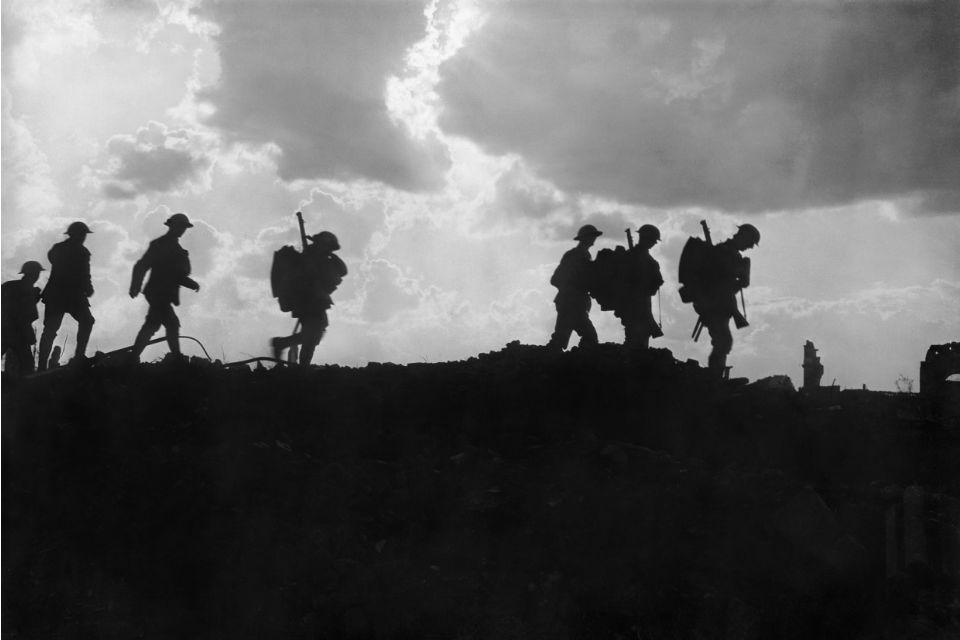The First World War: the Commonwealth contribution
Baroness Warsi's keynote speech at the launch of 'The First World War: the Commonwealth contribution'.

Introduction
In his speech ‘A Time of Triumph’, Winston Churchill praised those who came “from the uttermost ends of the earth” to fight alongside Britain in the Second World War. “From the poorest colony to the most powerful dominion”, he said, “the great maxim held: when the King declares war, the Empire is at war”.
Both of my grandfathers were among those brave men. And for that reason I have always known something of British India’s role in that conflict. But for many years I was unaware of the role their fellow countrymen played 30 years earlier. The 1,500,000 from modern day India, Pakistan and Bangladesh who served, fought and fell for Britain in the Great War.
So many others from what is now the Commonwealth served too. Nearly half a million from Canada. The same number from Australia, Tasmania, New Zealand and Newfoundland. 74,000 from South Africa. 16,000 from the West Indies. 30,000 from other dominions. And many more from beyond the British Empire.
As I’ve said on many occasions, our boys were not just Tommies - they were Tariqs and Tajinders too. And for far too long this has been overlooked, like a chapter torn from the book of our history. This project, the lectures, the multi-media presentations, are a way of using the forthcoming centenary to make us all better informed.
Real stories
It’s important that the focus is on the individuals. Using letters and photographs; war diaries and anecdotes. To reveal the stories behind the statistics. As the Prime Minister said: some will make you cry, some will make you laugh. Let me tell you one which inspired me.
Mir Dast, from Tirah, Pakistan, found himself in a poisonous gas attack on the Ypres Salient. There were no gas masks. His comrades resorted to makeshift measures to survive. Dipping their turban ends in chloride of lime and holding them over their mouths. Meanwhile, Mir Dast rallied all the men he could. He brought in 8 wounded officers, despite being wounded and gassed himself. For this, he won the highest military honour.
And this is how he described it to his family:
The men who came from our regiment have done very well and will do so again.
I want your congratulations. I have got the Victoria Cross.
What astonishing humility - putting his comrades first in his letter, just as he had done on the battlefield.
Interfaith co-operation
Earlier this year I visited the battlefields of Belgium and northern France. And those long, even lines of headstones give some insight into the scale of sacrifice. Each one representing a life extinguished and a family bereft. The inscriptions and symbols on the stones…Christian crosses. But also Stars of David. Urdu and Hindi script. Even Chinese lettering.
For me that diversity is the starkest reminder: that comradeship, companionship and co-existence cut cross all faiths.
Of course, this doesn’t sit particularly well with extremists’ views. And it doesn’t fit the extremists’ narrative that other faiths have no place in Britain. It dispels the myth that you cannot be both devoted to a faith and loyal to a country. Our shared history scuppers their argument. It says to the far-right: this wasn’t the all-white war you believe it was.
Now, ladies and gentlemen, we may have wrestled the Union Flag back from the extremists.
And I believe highlighting these multi-ethnic, multi-faith stories will reclaim our proud, patriotic history too. There will be many who don’t want these stories to come to light.
Whether it’s the extremists on the far-right. Or ignorant people like Anjem Choudary and his followers. Because this is about commemorating, honouring and, above all, learning - and it is good for Britain.
Conclusion
So I’m delighted to stand here and see this project come to fruition.
Can I thank the Curzon Institute, whose blood, toil, sweat and tears have especially helped to make this happen.
I know how important the support of the former chief of the defence staff has been.
[Hands over to General Sir David Richards].